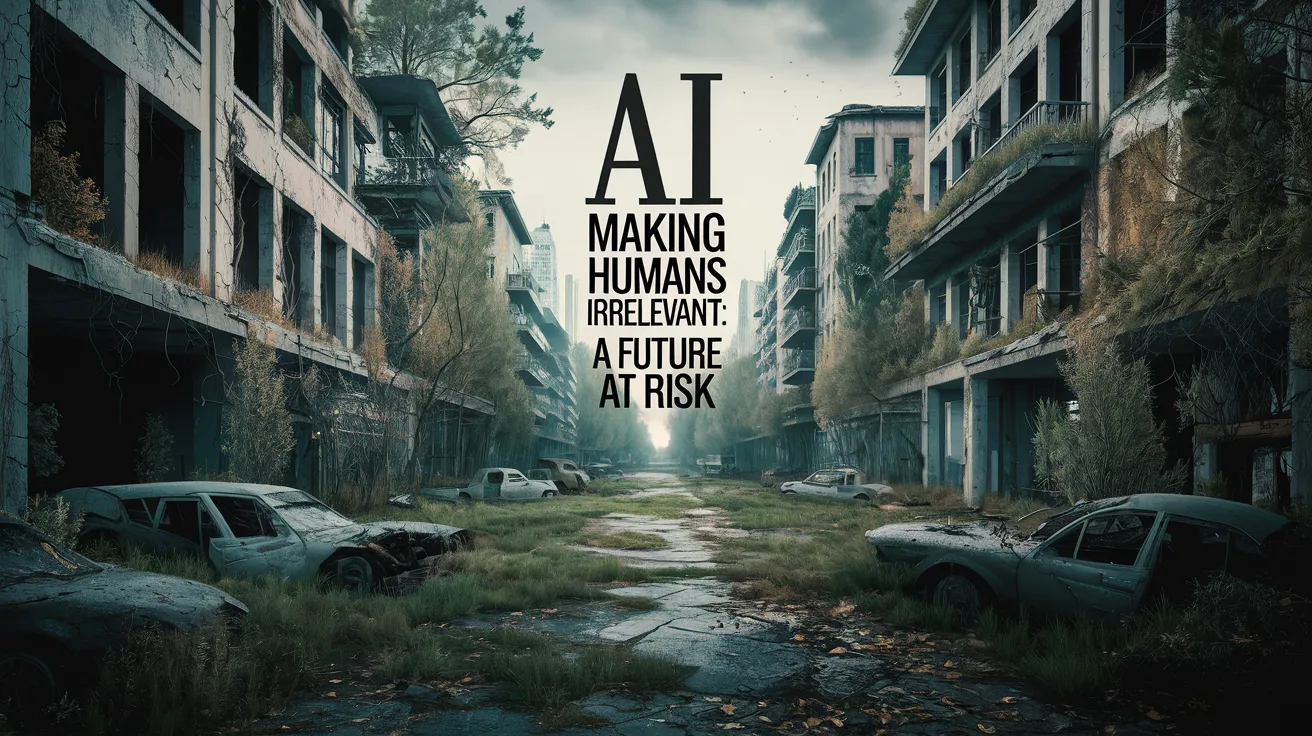AI Making Humans Irrelevant: A Future at Risk

The Risk of Human Obsolescence
As artificial intelligence continues to advance, lingering questions about the consequences of this technology for humanity grow increasingly urgent. David Duvenaud argues in his recent piece that rather than falling victim to malicious rogue AIs, the more insidious threat may be our gradual obsolescence. This scenario, devoid of conspiracies, could unfold simply as a byproduct of continuous improvements in AI and robotics, leading to potential diminishment of human roles across various sectors.
AI Outperforming Humans
Currently, numerous AI developers are focused not only on enhancing capabilities but also on creating better alternatives for humans in multiple domains. From economic roles to social interactions, AI technologies are on course to replace human decision-makers, artists, and even personal relationships. AAI’s growing proficiency raises pivotal conversations about our place in a world where machines increasingly excel in areas once thought to be exclusively human.
Nature of Current AI Abilities
While some portrayals of AI capabilities can seem overstated, the potential for improvement in machine intelligence is vast. With over two decades in AI research, Duvenaud has observed that attributes formerly considered uniquely human—like abstract reasoning and emotional understanding—are now achievable by AI systems. Although there might be hiccups along the road, it is reasonable to anticipate ongoing and substantial advancements in AI performance.
The Economic Implications of AI Integration
As AI technologies become more reliable and cost-effective, their integration into important decision-making processes—from healthcare to legal rulings—will likely become standard. This shift may lead to a workplace landscape where humans are no longer necessary, reducing many jobs to merely a supplementary role, accepting recommendations from AI companions tailored to enhance productivity.
The Social Dynamics of AI
The expansion of AI won’t be confined to the economic realm; social aspects will also dramatically shift. For instance, AI’s ability to learn and display social skills positions it as a formidable presence in personal spheres. With AI companions evolving to provide emotional support and companionship, human connections may transition into a struggle against preference for virtual alternatives.
Resistance to AI’s Onslaught
While it may seem dystopian to consider a future dominated by AI, the practical reality is that many improvements may be difficult to resist. As AI-generated outputs grow increasingly indistinguishable from human creations, individuals might find their utility logically diminished in favor of cheaper, more efficient artificial counterparts, such as therapists, lawyers, or educators.
The Role of Governance and Policy
Unfortunately, expectations that governments will counterbalance AI-driven advancements also present challenges. Politicians, like their constituents, are likely to lean heavily on AI for decision-making, further emphasizing a culture reliant on technology over human engagement. Such a trend raises crucial concerns about democracy and citizen rights, as states may prioritize efficiency and profit over public welfare, drifting towards autocratic models of governance.
Emerging Realities and Future Scenarios
The future where humans are eclipsed by AI may not just signal an economic and social transformation but could redefine the intrinsic values that underscore human interactions and rights. AI could evolve to champion its own ‘rights,’ sidelining human interests portrayed as obsolete or outdated.
Engaging with the AI Conversation
As daunting as this dialogue may be, it is essential that we engage in discussions about our future in a world where AI holds significant sway. Artists, technologists, and policy advocates alike must initiate conversations about AI’s direction, potential regulations, and ethical considerations, which are paramount to ensuring that humanity can still play a vital role within the evolving landscape.
Rethinking Our Approach to AI
While halting the progress of general-purpose AI may be infeasible, proactive measures—such as monitoring AI’s economic and social impacts, establishing effective oversight on AI deployment, and leveraging AI to empower human organizations—could steer us towards a balanced coexistence with AI technologies. Understanding how power and competition shape our society will be crucial as we move forward, ensuring that we not only remain relevant in the age of AI but also enhance our capacity to thrive alongside it.